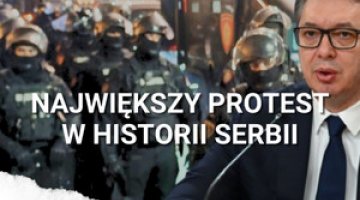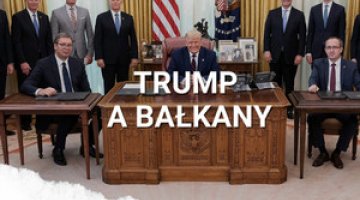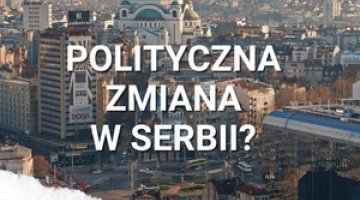Serbia: Vučić is the likely winner in the race for the presidency
The presidential election in Serbia is scheduled for 2 April. The likely winner is the current prime minister and leader of the centre-right Serbian Progressive Party (SNS), Aleksandar Vučić. The outgoing president, Tomislav Nikolić, who is associated with the national wing of the SNS, has not received support from the coalition formed by the SNS and the Socialist Party of Serbia (SPS) and will not seek re-election. Vučić, as a candidate of the government camp, will have to vie with independent candidates: the former minister of foreign affairs Vuk Jeremić and the former national ombudsman Saša Janković. He will also be up against representatives of the nationalist opposition: the leader of the Serbian Radical Party, Vojislav Šešelj, and Boško Obradović from the Dveri party. According to forecasts, Vučić may expect support from 53% of the voters. His counter-candidates with the highest support levels are: Janković (around 15%) and Jeremić and Šešelj (around 11% each).
Commentary
- Vučić’s decision to run for the presidency was motivated by the need to maintain the unity of the government camp. Had the SNS backed Nikolić’s re-election, Ivica Dačić, the leader of the socialist party, SPS (a member of the government coalition) who serves as the minister of foreign affairs, would have also taken part in the presidential race, and thus the coalition would have had two candidates. Vučić’s is almost certain of victory in the election, and his main objective is to win the race in the first round, which would be used as proof for the carefully crafted image of Vučić as the unquestioned ‘leader of the nation’. The media dominated by the government camp and the weakness of the centre-left and nationalist opposition are the factors that will help him implement this plan. Vučić’s victory in the election will only mean a formal change in the government elite. Even if he resigns as the party chairman, Vučić will still have influence over the SNS, where he has no serious opposition as leader, and will maintain his position as the main player on the political scene. It cannot be ruled out that he will reach beyond his constitutional prerogatives as president in his actions. Furthermore, as he steps down as prime minister, he will be able to escape direct responsibility for the costly social reforms which are necessary in order for Serbia to benefit, for example, from IMF loans.
- The April election will be a kind of plebiscite evaluating the five years of work of the government coalition formed by the SNS and the Socialists, and especially the three years of Vučić’s rule as prime minister. Vučić wishes to be perceived as a politician who is a partner to global leaders. Since 2014, he has been engaged in accession negotiations with the EU, and - co-operates with NATO, at the same time managing to maintain good relations with Russia and China. He also presents himself as a successful and tough negotiator of the interests of the Kosovo Serbs and as a principled defender of the state’s territorial integrity.
- The opposition candidates have employed a campaign to undermine Vučić’s image, pointing to the fact that the coalition parties have been appropriating the state on an increasing scale, and to links between politicians and business circles involving corruption. The nationalist opposition accuses him of being overly submissive to the West (especially in the context of Kosovo) and of spoiling relations with Russia. The independent candidates, Janković and Jeremić, are treating this election above all as a test of their popularity. It may be expected that a good result will encourage them to build new political formations.





